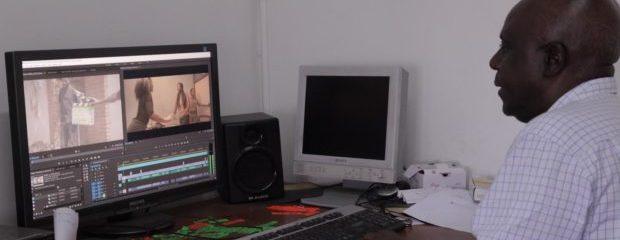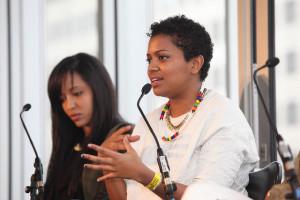ICC and Kenya’s 2012 elections: ‘The Half Made Place’ – By Dan Branch

 Kenya is, according to the writer Billy Kahora, a “˜half-made place,’ a country of “˜parallel universes, parallel economies, parallel lives, futures and realities.’[i] One does need to look hard these days to find the parallel universes and realities. On one hand, the country is still celebrating the promulgation of a new progressive constitution last year. The judiciary is being overhauled, some of the powers of an over-mighty executive dismantled and partial devolution to new county authorities is under way. In an address to the nation made to mark the first anniversary of the constitution, President Mwai Kibaki told Kenyans that the new constitution “˜is a guarantee that the Kenyan people shall henceforth resolve any potential conflict through the rule of law.’[ii] On the other hand, Kibaki and other leading politicians have been engaged in a sustained effort to deny that very same rule of law.
Kenya is, according to the writer Billy Kahora, a “˜half-made place,’ a country of “˜parallel universes, parallel economies, parallel lives, futures and realities.’[i] One does need to look hard these days to find the parallel universes and realities. On one hand, the country is still celebrating the promulgation of a new progressive constitution last year. The judiciary is being overhauled, some of the powers of an over-mighty executive dismantled and partial devolution to new county authorities is under way. In an address to the nation made to mark the first anniversary of the constitution, President Mwai Kibaki told Kenyans that the new constitution “˜is a guarantee that the Kenyan people shall henceforth resolve any potential conflict through the rule of law.’[ii] On the other hand, Kibaki and other leading politicians have been engaged in a sustained effort to deny that very same rule of law.
Besides the constitution, the big story over the past year has been the two ongoing cases at the International Criminal Court in which six prominent individuals are alleged to have overseen the violence that followed the dispute 2007 presidential election. Beginning on 1 September, the six – Finance Minister Uhuru Kenyatta, ex-Higher Education Minister William Ruto, Cabinet Secretary Francis Mathaura, ex- Police Commissioner Mohammed Ali, MP Henry Kosgey and the broadcaster Joshua Sang – face a round of hearings in The Hague to determine whether or not the cases will go to trial.
Once the names of the six suspects were publicly announced last December, a sustained campaign was launched in order to discredit the ICC and its chief prosecutor, Luis Moreno-Ocampo. With President Kibaki anxious to protect his protégé, Kenyatta, and close ally, Muthaura, some parts of the government mounted a diplomatic effort. Although supported by other African states, Kenyan diplomats led by Vice President Kalonzo Musyoka failed in their efforts to persuade the United Nation’s Security Council to order the court to drop the charges. Unbowed by this defeat, MPs allied to the president, Kenyatta, Ruto and Kosgey attempted to have Kenya withdraw as a signatory to the Treaty of Rome that established the ICC, but again to no avail.
These efforts should not be dressed up as the concerns of an African state about the extent of the ICC’s jurisdiction over the continent or as part of philosophical debates about sovereignty. Instead, the attempts to derail the ICC cases are motivated entirely by politics. Two of the suspects, Ruto and Kenyatta, want to run for president in elections due to be held next year. For his part, the current president does not want his allies like Muthaura and Ali to face trial on charges of state-sanctioned violence against his people. So every effort that can be made to block, delay or dispute the ICC process is being taken in order to protect the political ambitions of a few individuals.
Under Kenya’s new constitution, Ruto and Kenyatta will be able to stand for election even if trials are underway by the time the election is held next August. Both have made it clear that they intend to do so, but many Kenyans understandably find the thought distasteful.[iii] Driven by a belief that the Kenyan judicial system remains inadequate for the trials of suspected perpetrators of the post-election violence, respondents to a series of opinion polls have demonstrated sustained support for the ICC process. In an effort to destroy that popular support, the suspects and their leading allies have turned to depicting the charges as the result of a political conspiracy stretching from the offices of their rivals to The Hague. As Ruto puts it, “˜It is really a tragedy that things can be cooked and taken to the international arena.’[iv]
In the fictional narrative presented by Ruto and Kenyatta, the two men are been targeted as part of wider efforts to victimise their respective Kalenjin and Kikuyu ethnic groups by supporters of the ICC case, most obviously Prime Minister Raila Odinga and his Luo support-base. The suggestion that Odinga is somehow behind the cases is patently absurd, but one that seems believable in a context in which the Luo leader is the most public voice of support for the ICC.
Neither Odinga nor his leading supporters were included in Moreno-Ocampo’s list of suspects announced last December. A presidential candidate on numerous occasions in the past and the most likely actual winner of the disputed 2007 poll, Odinga will certainly stand for the presidency in 2012. Ahead in the opinion polls, free from the distractions of having to mount a legal defence at The Hague and not discredited at home or abroad by being the alleged perpetrator of crimes against humanity, Odinga cuts a formidable figure as the country looks ahead to next year’s election.
Odinga has, however, powerful enemies. He and Ruto fell out shortly after the last election and their subsequent rows were one of the defining characteristics of the power-sharing government that has been in place since April 2008. Ruto was finally sacked from the government last week, but had long ago formed an informal anti-Odinga alliance with Kenyatta and Vice President Musyoka. Now known as the G7 alliance, this faction is determined to see their great rival thwarted in his bid for the presidency in 2012. Musyoka, incidentally, is the other main beneficiary of the ICC case. Should Ruto and Kenyatta eventually face trial, Musyoka may be able to persuade the pair that he should be the main anti-Odinga candidate. An uninspiring individual, Musyoka will nevertheless be a strong candidate with the backing of his own Kamba community and the endorsement of Kenyatta and Ruto.
The ethnicisation and politicisation of the debates about the ICC are alarming, particularly given the history of politically orchestrated ethnic violence between Kalenjin and Luo in the 1990s. And while a sense of shared grievance against the ICC and Odinga may temporarily tie together Kalenjin and Kikuyu – the fault line that cracked in the first few weeks of 2008 with deadly consequences – a heightened sense of ethnic victimisation on the part of Kikuyu or Kalenjin does not make for a rosy future. But there are signs that the tactics of Ruto and Kenyatta are working. A recent drop in public approval for the ICC cases can be attributed to a collapse in support for the process among voters in Ruto’s and Kenyatta’s respective heartlands of the Rift Valley and Mount Kenya regions.[v]
The line needs to be held if the victims of the violence of 2008 are to receive justice. In the months running up to the next election, numerous arguments will doubtless be made that the ICC’s influence over the outcome is disproportionate and an unnecessary external interference in the internal politics of Kenya. The ICC is an imperfect institution, but in Kenya can be seen to living up to its mandate as the court of last resort. There is no credible, proven alternative legal structure that can deliver justice. The government has passed up numerous opportunities to demonstrate its commitment to punishing those guilty of crimes committed during the post-election violence.
Every effort should be made to ensure that the ICC cases are allowed to run their course. This is an unparalleled opportunity in Kenya’s recent history to demonstrate the worth a judicial process unencumbered by the political concerns of the ruling elite. If the suspects think Moreno-Ocampo’s evidence is weak, let them demonstrate that in the court room at The Hague rather than the court of public opinion in Nakuru or Eldoret. Obstructing the ICC case will do nothing to make Kenya a fully made place.
Daniel Branch is associate professor of African history at the University of Warwick. His history of post-colonial Kenya, Kenya: Between Hope and Despair 1963-2011, will be published by Yale University Press in October. His first book, Defeating Mau Mau, Creating Kenya: Counterinsurgency, Civil War and Decolonization was published by Cambridge University Press in 2009.
[i] Billy Kahora, “˜The Fire Next Time or a Half-Made Place: Between Tetra Paks and Plastic Bags,’ Kwani?, vol. 5, no. 2 (2008), 8-12.
[ii] Quoted in Peter Leftie, “˜Kenyans mark first anniversary of life changing moment,’ The Nation, 26 August 2011 (http://www.nation.co.ke/News/-/1056/1225934/-/10giy8nz/-/index.html – accessed on 27 August 2011).
[iii] Ramadhan Rajab, “˜Uhuru, Muthaura Should Resign if Case Confirmed,’ Nairobi Star, 25 August 2011 (http://allafrica.com/stories/201108251349.html – accessed on 27 August 2011).
[iv] Dave Opiyo and Oliver Matheng, “˜Ocampo Peddling Lies, Claims Ruto,’ The Nation, 3 August 2011 (http://allafrica.com/stories/201108040008.html – accessed on 27 August 2011).
[v] Peter Mwai, “˜Poll – Support for the Trial of Six in Hague Wanes,’ The Nation, 19 August 2011 (http://allafrica.com/stories/201108230075.html – accessed on 27 August 2011).







Well said, Prof. Branch.
[…] 2. The ICC and Kenya: “The Half Made Place” […]